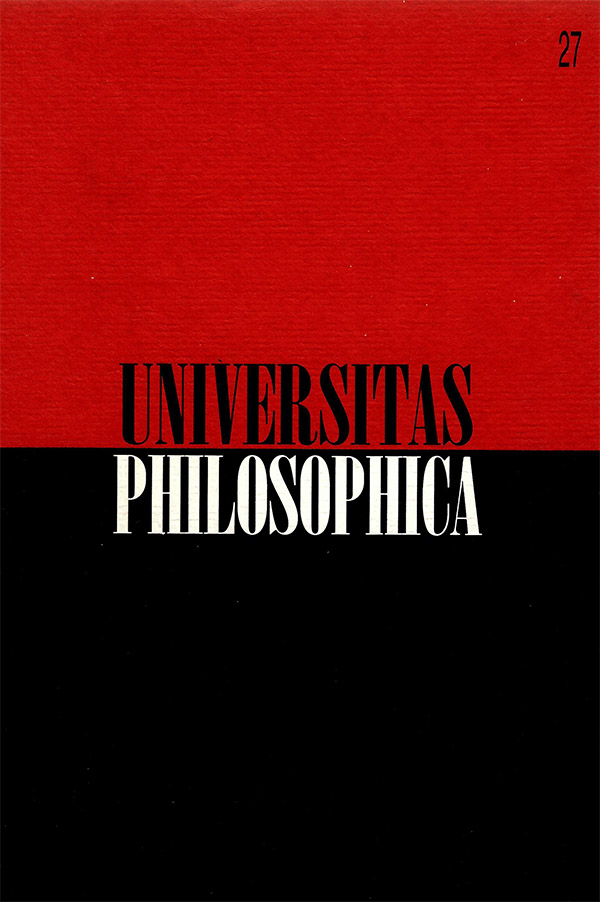Abstract
In his Discourse of Method, Descartes asserts that God has given us the possibility to distinguish between right and false. This may be a preliminary positive condition for the search for truth in the Meditations. The fact that God is mentioned in the 1st Meditation in connection with truth and falsehood shows that for Descartes God has a well-defined function within the Meditations: to guarantee truth. This becomes clear in the 3rd. Meditation, where the prove of God's existence is based on our experience of contingency as limitation, and this is only possible in relation to the infinite God whose image is our mind itself. Hence, the proof of God's existence is not an invalid causal conclusion from pure contingency to a completely different ontological realm, for God's infinity is already present in us in the form of his idea. Therefore the conclusion is valid. On the other hand, the so called ontological proof of the 5th Meditation has no more validity than mathematical truths, but it shows that the intimate connection between existence and essence in God is the ultimate source for all necessary truths, i.e. the laws of mathematics and sciences, since, as established at the end of the 5th Meditation, God guarantees remembered clear and distinct ideas. This is means that science cannot be founded only on presently known insights but needs God in order to be.
This journal is registered under a Creative Commons Attribution 4.0 International Public License. Thus, this work may be reproduced, distributed, and publicly shared in digital format, as long as the names of the authors and Pontificia Universidad Javeriana are acknowledged. Others are allowed to quote, adapt, transform, auto-archive, republish, and create based on this material, for any purpose (even commercial ones), provided the authorship is duly acknowledged, a link to the original work is provided, and it is specified if changes have been made. Pontificia Universidad Javeriana does not hold the rights of published works and the authors are solely responsible for the contents of their works; they keep the moral, intellectual, privacy, and publicity rights.
Approving the intervention of the work (review, copy-editing, translation, layout) and the following outreach, are granted through an use license and not through an assignment of rights. This means the journal and Pontificia Universidad Javeriana cannot be held responsible for any ethical malpractice by the authors. As a consequence of the protection granted by the use license, the journal is not required to publish recantations or modify information already published, unless the errata stems from the editorial management process. Publishing contents in this journal does not generate royalties for contributors.


